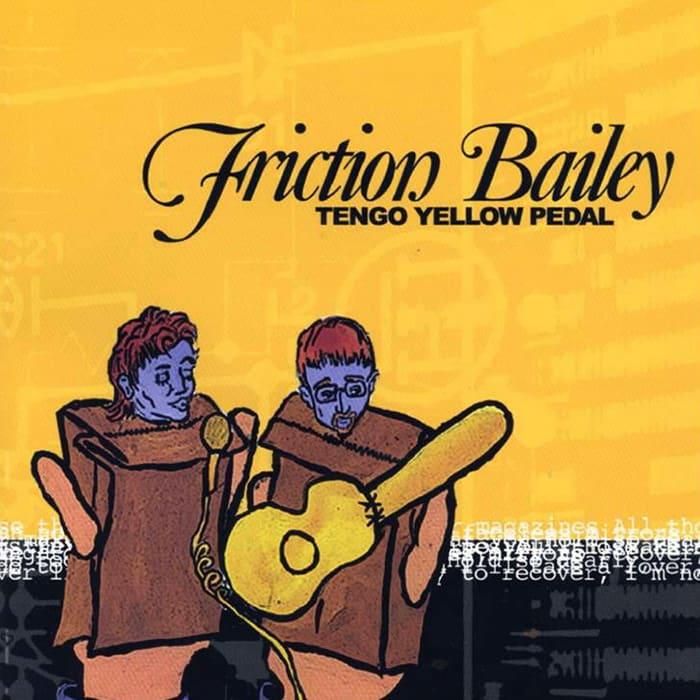Tengo Yellow Pedal by Friction Bailey (Review)

One thing I’ve noticed when it comes to music is that I’ve become more and more jaded. Songs that would’ve excited or struck me a year ago now elicit no more than a shrug, or more often, a groan. I don’t really think it’s a result of growing older, but more often than not, merely being bored with what I’m hearing. And it’s not for lack of good music either, because on one level, I fully realize that they are good songs. And it’s tempting to write reviews like that, to give it the critical equivalent of a noncommittal gesture, to simply sit back and describe the music without really giving my opinion, to say it’s “alright” and just leave it at that.
While listening to Tengo Yellow Pedal, there are times that I want to do just that. Parts of the album are so homogenous that they run together (which works great for ambient music, but not necessarily acoustic-based, folk-tinged pop). The first time I listened to the album, I suddenly realized the CD was on “Your Voice,” and I couldn’t remember listening to tracks 2 and 3. But though the more adventurous side of me finds parts of the album a bit too much on the repetitive side, I must say that some of these gentle songs have grown on me.
For example, there’s the album’s opener (and, in a fairer world, obvious hit single), “I’m A Sucker (For Your Love).” It sounds like nothing so much as a version of Ivy unburdened by maudlin lyrics and Dominique’s wistful vocals. If you’re a fan of Ida’s brand of domestic bliss-inspired pop, or bands like the Innocence Mission, then you’ll find yourself in very good company. Much of that has to do with the vocals of Joy Guiles. Reminiscent of other vocalists blessed with the voice of a starry-eyed little girl — think Leigh Bingham Nash (Sixpence None the Richer) or Victoria Williams — you imagine her singing lyrics like “Noone could pronounce your name/But on my lips a constant stain” with eyes half closed and a dreamy smile.
As you might gather from titles like “Your Voice,” “Talk To Me,” and “A Lover Like This,” much of the album is concerned with relationships and their facets. I might be going out on a limb, but I’m fairly certain that much of that has to do with the primary songwriters being married (yet another Ida-ism, perhaps?). You wonder if the duo don’t discuss their songs over a Sunday lunch, composing lyrics on the back of the grocery list. Some might find the lyrics a little clumsy in parts (“All the cash and your Visa gold cards, all your interest rates/All those things that you hold so dearly do not co-habitate”), but the group’s honest, stripped down renditions of “Nothing But the Blood” and “Rejoice” (which also highlight’s the duo’s vocal pairing) should make up for them.
So what’s the final verdict? Does this album get a shrug, or something more? Many parts of this album are quite fetching, such as Joy’s gorgeous voice floating over “There’s Something To Be Said” or the atmospheric bridge of “Your Voice” that threatens to fade away but thankfully doesn’t. And then there’s always the first track and the group’s hymnal renditions. I’ve spent a fair portion of this review writing about the album’s high points, but that’s just what they are — high points. The album is quite consistent throughout, that much is true. But it’s that consistency, lyrically and musically, that really keeps me from digging in, because I know that no matter how deep I dig, I stand to find the same material again and again. And it’s a shame, because I really, really love that first track.